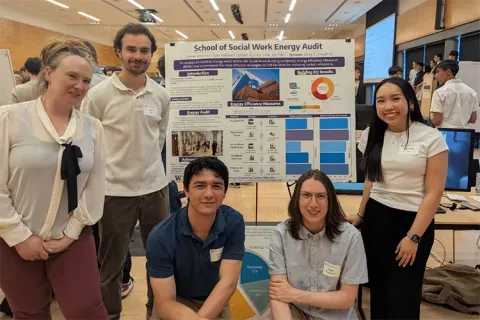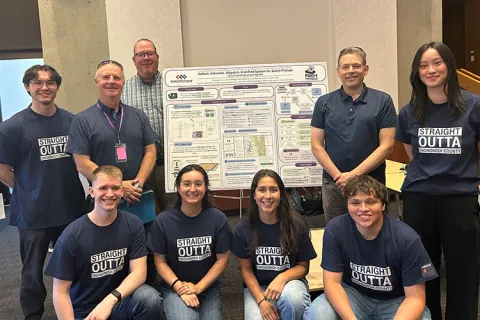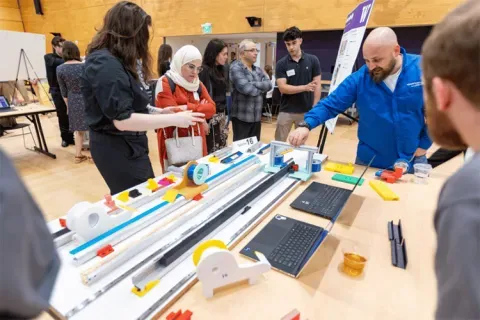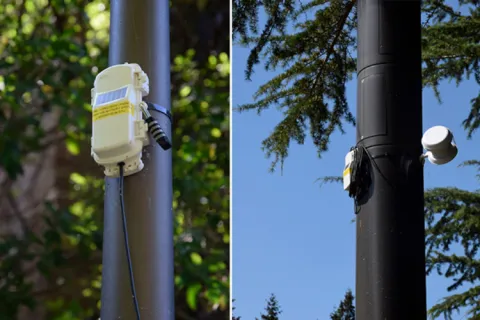GE Vernova
Battery Scheduling for Carbon Reduction
This student team worked to research load + solar + storage systems and the ways to best schedule energy storage for minimum greenhouse gas emissions. Using historical grid carbon intensity data from https://www.watttime.org/ or other sources, students attempted to first determine net carbon emissions for a typical residential or commercial load over the course of a month. Next, students worked to assess the impact of installing a PV system, assuming a system size and output profile using historical weather data and information and a basic PV production model. Finally, the students worked to design a battery energy storage system and controller that couples with the solar installation to minimize the net carbon footprint. The student team attempted to design the battery controller (rule-based, PID, LP, etc.) to steer battery charging/discharging during day-to-day operations towards a least carbon objective, taking into account load, grid carbon intensity data and solar output.
Faculty Adviser(s)
Payman Arabshahi, Electrical & Computer Engineering
Related News

Mon, 10/13/2025 | UW Mechanical Engineering
Capstone collaboration leads to award
An ME capstone team received first place for its energy audit of the UW School of Social Work building.

Thu, 07/17/2025
UW engineering students develop smart ballot solution
UW engineering students develop smart technology solution to improve ballot collection for Snohomish County.

Mon, 07/07/2025 | UW Mechanical Engineering
Capstone creations
Students displayed innovative capstone design projects at the 2025 expo.

Fri, 09/20/2024 | UW Civil & Environmental Engineering
Smarter irrigation for a greener UW
A new project combines satellite data with ground sensors to conserve water and create a more sustainable campus environment.